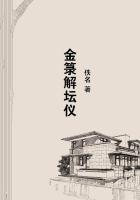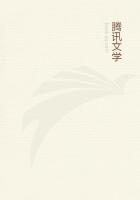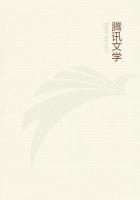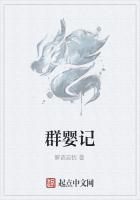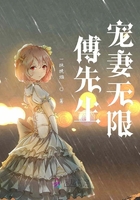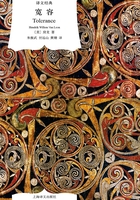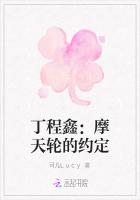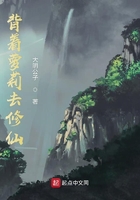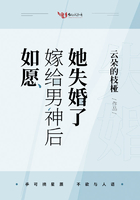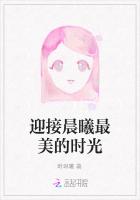What are laborers in relation to each other? So many members of a large industrial society, to each of whom is assigned a certain portion of the general production, by the principle of the division of labor and functions.Suppose, first, that this society is composed of but three individuals,-- a cattle-raiser, a tanner, and a shoemaker.The social industry, then, is that of shoemaking.If I should ask what ought to be each producer's share of the social product, the first schoolboy whom I should meet would answer, by a rule of commerce and association, that it should be one-third.But it is not our duty here to balance the rights of laborers conventionally associated: we have to prove that, whether associated or not, our three workers are obliged to act as if they were; that, whether they will or no, they are associated by the force of things, by mathematical necessity.
Three processes are required in the manufacture of shoes,--the rearing of cattle, the preparation of their hides, and the cutting and sewing.If the hide, on leaving the farmer's stable, is worth one, it is worth two on leaving the tanner's pit, and three on leaving the shoemaker's shop.Each laborer has produced a portion of the utility; so that, by adding all these portions together, we get the value of the article.To obtain any quantity whatever of this article, each producer must pay, then, first for his own labor, and second for the labor of the other producers.Thus, to obtain as many shoes as can be made from ten hides, the farmer will give thirty raw hides, and the tanner twenty tanned hides.For, the shoes that are made from ten hides are worth thirty raw hides, in consequence of the extra labor bestowed upon them; just as twenty tanned hides are worth thirty raw hides, on account of the tanner's labor.But if the shoemaker demands thirty-three in the farmer's product, or twenty-two in the tanner's, for ten in his own, there will be no exchange; for, if there were, the farmer and the tanner, after having paid the shoemaker ten for his labor, would have to pay eleven for that which they had themselves sold for ten,--which, of course, would be impossible.
There is an error in the author's calculation here; but the translator, feeling sure that the reader will understand Proudhon's meaning, prefers not to alter his figures.--Translator.
Well, this is precisely what happens whenever an emolument of any kind is received; be it called revenue, farm-rent, interest, or profit.In the little community of which we are speaking, if the shoemaker--in order to procure tools, buy a stock of leather, and support himself until he receives something from his investment--borrows money at interest, it is clear that to pay this interest he will have to make a profit off the tanner and the farmer.But as this profit is impossible unless fraud is used, the interest will fall back upon the shoulders of the unfortunate shoemaker, and ruin him.
I have imagined a case of unnatural simplicity.There is no human society but sustains more than three vocations.The most uncivilized society supports numerous industries; to-day, the number of industrial functions (I mean by industrial functions all useful functions) exceeds, perhaps, a thousand.However numerous the occupations, the economic law remains the same,--THAT THE PRODUCER MAY LIVE, HIS WAGES MUST REPURCHASE HISPRODUCT.
_ _The economists cannot be ignorant of this rudimentary principle of their pretended science: why, then, do they so obstinately defend property, and inequality of wages, and the legitimacy of usury, and the honesty of profit,--all of which contradict the economic law, and make exchange impossible?
A contractor pays one hundred thousand francs for raw material, fifty thousand francs in wages, and then expects to receive a product of two hundred thousand francs,--that is, expects to make a profit on the material and on the labor of his employees; but if the laborers and the purveyor of the material cannot, with their combined wages, repurchase that which they have produced for the contractor, how can they live? I will develop my question.Here details become necessary.
If the workingman receives for his labor an average of three francs per day, his employer (in order to gain any thing beyond his own salary, if only interest on his capital) must sell the day's labor of his employee, in the form of merchandise, for more than three francs.The workingman cannot, then, repurchase that which he has produced for his master.It is thus with all trades whatsoever.The tailor, the hatter, the cabinet-maker, the blacksmith, the tanner, the mason, the jeweller, the printer, the clerk, &c., even to the farmer and wine-grower, cannot repurchase their products; since, producing for a master who in one form or another makes a profit, they are obliged to pay more for their own labor than they get for it.
In France, twenty millions of laborers, engaged in all the branches of science, art, and industry, produce every thing which is useful to man.Their annual wages amount, it is estimated.
to twenty thousand millions; but, in consequence of the right of property, and the multifarious forms of increase, premiums, tithes, interests, fines, profits, farm-rents, house-rents, revenues, emoluments of every nature and description, their products are estimated by the proprietors and employers at twenty-five thousand millions.What does that signify? That the laborers, who are obliged to repurchase these products in order to live, must either pay five for that which they produced for four, or fast one day in five.
If there is an economist in France able to show that this calculation is false, I summon him to appear; and I promise to retract all that I have wrongfully and wickedly uttered in my attacks upon property.
Let us now look at the results of this profit.

